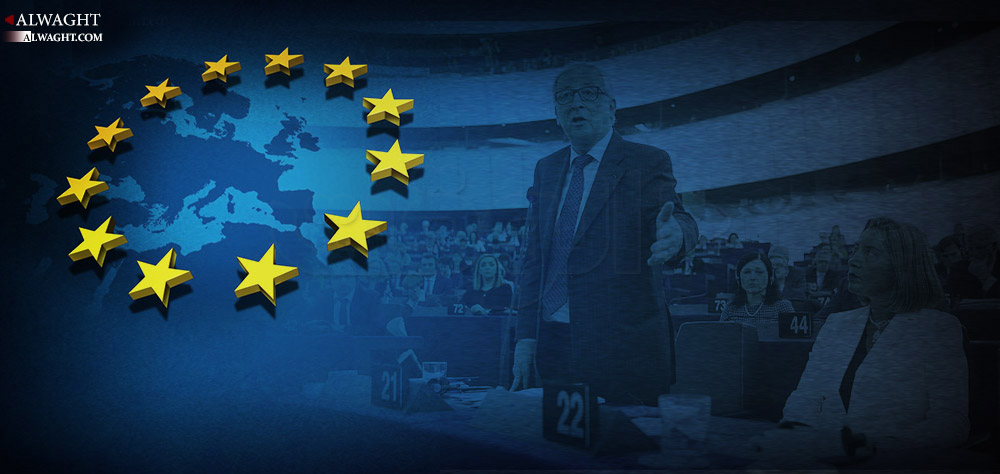Alwaght- The European Commission on Tuesday suggested that the European Union opens the talks with the two Balkan nations of Albania and Macedonia to prepare for their accession to the 27-nation bloc.
The Commission has reported that Macedonia and Albania, which placed their accession requests consecutively in 2005 and 2014, have made the necessary progressions to make them qualified to talk with the EU for its membership. The EC, however, added that the two Balkan states needed to do more to guarantee their entry to the bloc.
In 2009, Albania had announced readiness to become a member of the North Atlantic Treaty Organization (NATO), a Western military bloc with 29 members.
Green light to Albania and Macedonia, red Light to Turkey
The EC’s recommendation to start membership discussions with the two Balkan states comes while the Turkish accession request is left on the shelf. The analysts suggest that the fresh EU announcement sends a direct message to Ankara, which has been put on a long road to join the club.
In general, the talks for the accession of a new state to the Union begin when the other member countries advocate a recommendation of the EC to start negotiations with a specific applicant. After the recent EC suggestion, the debate to have two new states on board could go fast.
Opposite to Albania and Macedonia that see the way highly paved for them to join the EU, Turkey has ahead a road full of obstacles. After nearly 20 years, Ankara has failed to get the EU member’s green light to enter the bloc.
It is apparent that the Turkish EU accession hardship has political— and even religious and cultural— roots. In the past two decades, the Europeans have raised almost any excuses that could help set up roadblocks ahead of Ankara’s membership bid. Cases ranging from the dispute with Cyprus to the Armenian genocide of 1915 at the hand of the Ottoman Empire to Kurdish cause all put the largest blocks ahead of Turkey’s EU entry. There is a notion that even if Turkey addresses all of the raised issues, it still finds it difficult to join the European club.
Still, some believe that the Turkish society’s religious fabric, that is mostly Muslim, is the root cause of unofficial and tacit opposition of Germany and France to Turkey’s dream.
These days Turkey is seeing its chance to join the EU increasingly fading as Britain, the sole supporter of the Turkish membership, is leaving the European bloc as its last year’s nationwide referendum ruled. Perhaps the Brexit is the key factor these days prompting other European members to fully put aside the Turkish bid case and on the other side open the cases of Albania and Macedonia for discussion. In fact, EC recommendation on Albania and Macedonia sends a clear message to the Turks telling them they should no longer set their heart on accession.
Why does EU want Balkan states in?
The Europeans have tried hard to exhibit the Albania and Macedonia accession cases as a success. Federica Mogherini, the High Representative of the European Union for Foreign Affairs and Security Policy, who visited Albania on April 20, said that the EU has agreed with the Tirana’s bid for membership, and the polls show that among other nations of Balkans the Albanians have the greatest trust in the EU. She also hoped that the process of materialization of the two state’s entry will go fast.
Mogherini was not the only EU politician to hope for the two states to join the bloc. Johannes Hahn, the European Commissioner for European Neighborhood Policy and Enlargement Negotiations, has recently praised the positive measures taken by the two bidders and told the other members that such measures should not be taken for granted. Rather, they should form a drive for the talks for starting accession process.
The sharp eagerness to have new members on board derive from a spirit to oppose the voices which argue that the European bloc will be weakened once Britain leaves it. In fact, the pro-unity Europeans want to show that the Brexit is not a big deal and Britain's vacuum will be soon filled with other parties. It is important for them to keep the bloc alive and well after Britain. Opening the talks for Albania and Macedonia membership is expected to relax the pressure caused by Bexit.
From another perspective, presence of Balkan states in the EU will serve the block's interests. Balkan peninsula is geopolitically important for Europeans as it stands as a linking ring between south and north of Europe from the Baltic Sea to the Mediterranean Sea. Located between Asia and Europe, the region for decades has been a competition ground of Europe and Russia.
The Balkan region was hit by regional wars in the 1990s, something caused the Europeans to grow serious worries about their regional security. The bloc is not interested in the continuation of conflicts in this region and seeks to ensure the peace and security by accepting the Balkan states as members.



























